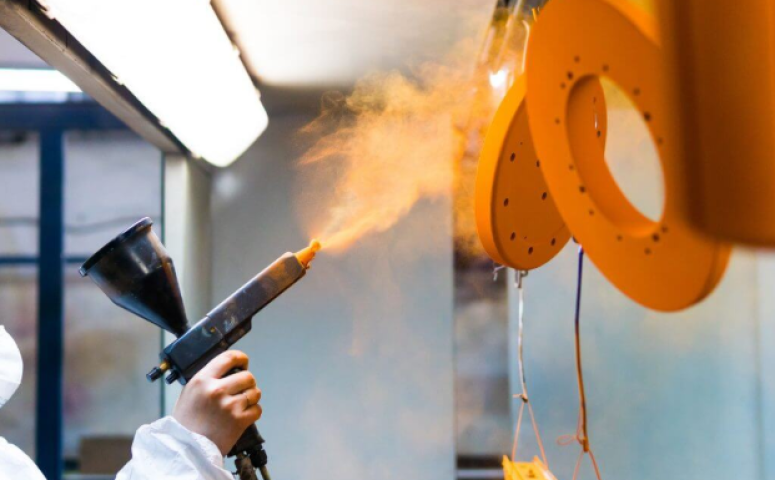Polyvinyl Chloride (PVC) reactors are integral to the production of PVC, one of the most widely used synthetic plastics across industries like construction, medical, automotive, and electronics. Given the highly reactive nature of the chemicals involved in the production process, maintaining safety and operational efficiency in PVC reactor systems is paramount. One of the most effective ways to achieve this is through the application of protective coatings. These coatings offer a wide range of benefits that contribute to both the longevity and safety of the reactor systems.
Understanding the Role of Polyvinyl Chloride Reactors
A PVC reactor is where the polymerization process of vinyl chloride monomer (VCM) occurs, leading to the formation of PVC resin. This process takes place in a highly controlled, pressurized environment with the use of extreme temperatures. During this operation, the reactor's materials are subjected to corrosive chemicals, high heat, and significant mechanical stresses. These conditions make the reactor prone to damage and failure if not properly maintained and protected.
The Need for Protective Coatings in PVC Reactors
Given the harsh operating conditions, the protective coating for polyvinyl chloride reactor is essential to prevent damage from the aggressive chemicals and extreme temperatures. Without these protective measures, reactors are at risk of degradation, leading to costly downtime and safety hazards.
- Corrosion Resistance
The chemicals involved in PVC production, particularly the chlorine gas and VCM, can rapidly corrode unprotected reactor surfaces. Corrosion not only weakens the reactor structure but also increases the risk of leaks and system failures. A high-quality protective coating for polyvinyl chloride reactors provides a protective barrier against these corrosive substances, extending the lifespan of the reactor and improving safety. - Thermal Protection
The polymerization process in PVC reactors generates substantial heat. Over time, repeated exposure to high temperatures can degrade reactor materials. A specialized protective coating offers thermal protection, ensuring that the reactor walls remain intact and operate within safe temperature limits. This protects the structural integrity of the reactor and helps maintain consistent production quality. - Prevention of Fouling and Scaling
Over time, the accumulation of byproducts and residue can build up on the reactor walls, leading to fouling or scaling. This buildup can interfere with the efficiency of the reactor, increasing the risk of blockages and other operational disruptions. Protective coatings help reduce the adhesion of these materials to the reactor surfaces, allowing for easier cleaning and more efficient operations. - Enhanced Safety
The application of protective coatings on PVC reactors helps reduce the risk of hazardous accidents, such as leaks or explosions, that could result from material degradation. By enhancing the safety of the reactor, protective coatings contribute to a safer working environment for operators and reduce the potential for costly environmental or regulatory violations.
Types of Protective Coatings for PVC Reactors
Several types of protective coatings are available, each designed to address specific challenges faced by PVC reactors. Choosing the right type of coating is essential for optimizing reactor performance and ensuring long-term durability.
- Epoxy Coatings
Epoxy-based coatings are often used for their exceptional chemical resistance, particularly against acids, alkalis, and solvents. These coatings form a durable, hard surface that resists wear, abrasion, and corrosion. Epoxy coatings are commonly applied to PVC reactors in industries where strong chemicals are used in the production process. - Polyurethane Coatings
Polyurethane coatings are known for their flexibility and resistance to both chemical corrosion and physical abrasion. These coatings are ideal for reactors subjected to fluctuating temperatures and mechanical stresses. The flexibility of polyurethane coatings helps prevent cracking and peeling under extreme operating conditions. - Fluoropolymer Coatings
Fluoropolymer coatings offer superior resistance to a wide range of chemicals, high temperatures, and UV radiation. They are often used in reactors where high temperatures and aggressive chemicals, such as chlorine, are involved. Fluoropolymers help maintain the integrity of the reactor's surface and ensure consistent production quality. - Ceramic Coatings
For reactors that face extreme abrasion and wear, ceramic coatings provide an excellent solution. These coatings are highly durable and capable of withstanding both thermal and mechanical stresses. Ceramic coatings are particularly useful in PVC reactors where fine particulate matter or abrasive materials are present.
Benefits of Protective Coatings for PVC Reactors
- Reduced Maintenance Costs
The application of protective coatings reduces the frequency of maintenance and repair work required to keep PVC reactors operational. With less corrosion and wear, there is less need for costly repairs, which ultimately lowers maintenance costs. - Increased Reactor Efficiency
By providing a barrier against corrosion, fouling, and scaling, protective coatings help maintain the efficiency of PVC reactors. This results in improved throughput, less downtime, and more reliable operations. - Prolonged Equipment Lifespan
Reactors with protective coatings experience significantly less wear and tear compared to uncoated reactors. This results in a longer equipment lifespan, which translates to greater return on investment and less frequent need for replacements. - Regulatory Compliance
Reactor safety and environmental impact are closely regulated in the chemical manufacturing industry. By applying protective coatings, companies can more easily comply with safety standards and regulations, avoiding penalties or shutdowns.
Conclusion
The application of a protective coating for polyvinyl chloride reactors is a critical step in ensuring safe, efficient, and cost-effective operations. These coatings not only protect the reactor from the harsh chemicals and extreme temperatures associated with PVC production, but they also contribute to the overall longevity and efficiency of the system. By investing in high-quality protective coatings, industries can enhance safety, reduce downtime, and improve the overall performance of their PVC reactors, ensuring optimal production and minimal disruptions.


